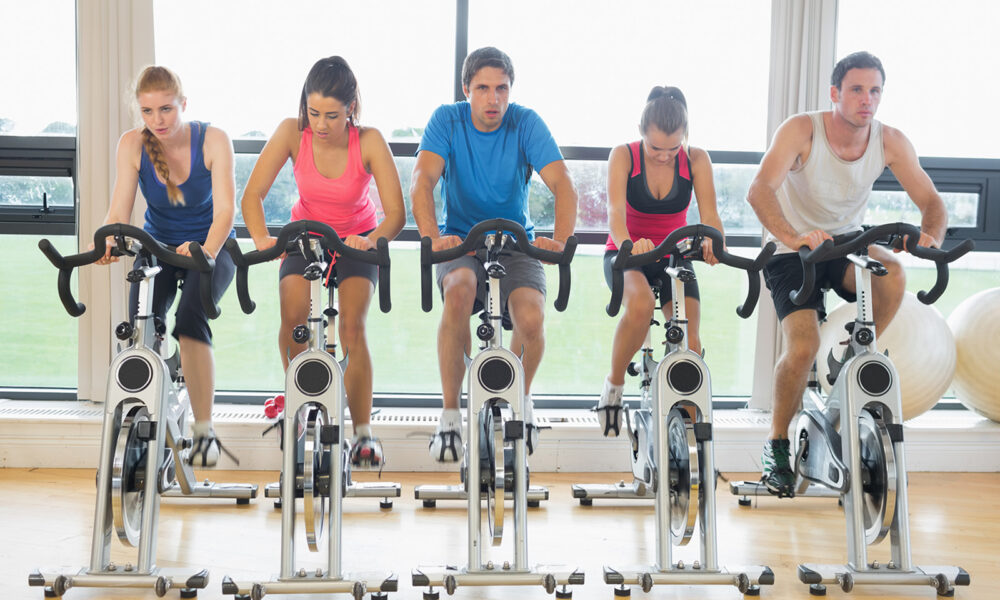

For a lot of people, a good playlist will always be a part of their fitness essentials. This is not surprising because some tunes can certainly have a great impact on your workout program. But, what exactly are the effects of music on exercise? Here are five ways your favorite upbeat songs can improve your workout.
The Benefits of Listening to Music while Exercising
1. An Excellent Motivator
For most of us, there will be days when we don’t feel like exercising due to laziness, a bad mood, or other reasons. But, succumbing to these negative sensations is certainly not the wisest choice. During these days, try listening to an upbeat music. Remember, uplifting songs can help ward off negative emotions. At the same time, these tunes can make you feel confident, zealous, and ready to face anything – including a tedious and grueling workout session.
2. Boosts Your Performance
Enhancing your performance is one of the most common effects of music on exercise. This is not only because of the mood-boosting effects of some tunes. Basically, some workout songs can also distract you from the physical stress of exercising. Instead of feeling tired and ready to call it a day, music can help you work harder and push your limits.
However, this effect may not be helpful for high-intensity workouts. Some studies revealed that music loses its capability to boost your performance once your heart rate reaches the anaerobic zone, which is around 166 to 179 beats per minute (BMP). The main reason is due to your body’s craving for oxygen that is stronger than your tunes.
Nonetheless, a good playlist is effective for low to moderate-intensity exercises. Plus, music can still bring life and joy into your workout.
3. Improves Body Coordination
Have you ever tried following a fat-burning HIIT workout video? Some of you have probably felt frustrated and uncoordinated, especially when you first tried the activity. This is normal. You’ll eventually feel more comfortable as you progress. But, you can also add some tunes to your routine. Basically, a song with the right beat can stimulate your cerebellum – the brain part that controls your movement and coordination. As a result, your body will move along with the beat, leading to a graceful, continuous, and efficient performance.
4. Pain Relief
One of the most valuable effects of music on exercise is pain relief. As you know, exercise can make you feel good because of the release of endorphins – one of the so-called happy hormones. But, did you know that some songs can also provide the same effect? According to a study, listening to music can trigger the release of dopamine, another brain chemical that can relieve pain and boost your mood. Thus, music can help extend your workout session by reducing your pain sensitivity.
However, a sharp and stabbing pain may indicate that an injury occurred. You have to stop exercising if you felt this type of discomfort. If the pain persists, you need to seek professional help.
5. Promotes Relaxation and Faster Recovery
Listening to a slow music can help relax your body after your extraneous workout. Moreover, a soothing tune (80 to 115 BPM) can also slow down your heart rate, lower your blood pressure, and relieve stress – leading to a faster post-workout recovery.
Maximizing the Effects of Music on Exercise
As you know, not all songs can have a positive impact on your workouts. Basically, the two variable you have to consider when choosing the right tunes are tempo and speed.
For example, an ideal warm-up song has 120 – 126 BMP. The beats will gradually increase or decrease depending on the type of exercise you’re going to do. Typically, a good tempo for cardio and strength training will range between 128 – 135 BPM. For yoga, you’ll need a slower tune, which is around 100 BPM or less.
Aside from that, picking songs from the right genre will also affect your outcome. Typically, a song under the “pop-techno” category will yield better results compared to a reggae tune, even though both kinds of music have the same beats.
With that, these effects of music on exercise can certainly improve your workout. However, always remember that you still need to rest and consume the right products to build a stronger physique.
Sources:
- Effects of Music on Exercise (UNM)
- Body Coordination and Music (NCBI)
- High-intensity Workouts and Music (NCBI)
- Music Releases Dopamine (Psychology Today)
- Music Hastens Recovery (IOSR-JDMS)
























